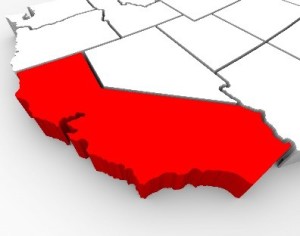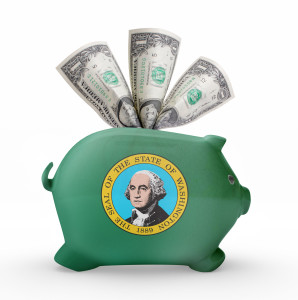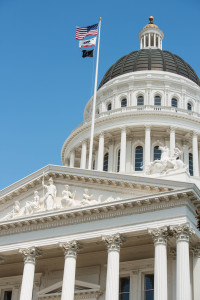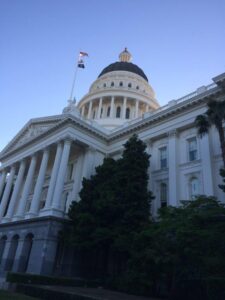California Competes Tax Credit Program
 For some companies, the California Competes Tax Credit Program may be a gift from the government during this holiday season (or early 2016). This program is designed to assist companies that plan to re-locate to or stay and expand in the state of California. It appears that more businesses should take advantage of this program which has a budget of over $200 million in tax credit annually. There are three filing periods for the current fiscal year of 2015-2016:
For some companies, the California Competes Tax Credit Program may be a gift from the government during this holiday season (or early 2016). This program is designed to assist companies that plan to re-locate to or stay and expand in the state of California. It appears that more businesses should take advantage of this program which has a budget of over $200 million in tax credit annually. There are three filing periods for the current fiscal year of 2015-2016:
- July 20, 2015, through August 17, 2015 ($75 million available)
- January 4, 2016, through January 25, 2016 ($75 million available)
- March 7, 2016, through March 28, 2016 ($50.9 million plus any remaining unallocated amounts from the previous application periods)
The upcoming committee meetings to review and approve applications are as follows:
- April 14, 2016
- June 16, 2016
Even though the first filing period has passed, it is not too late to apply in January. In the most recent committee meeting held in November, less than $45 million out of the $75 million available was requested for approval. A total of 59 large companies filed for $33 million in tax credits and only 30 small businesses filed for $10 million of tax credits. The California government has created this pool of tax credits for businesses to thrive in the industry, and a huge portion of it is left untouched.Read more
[Thanksgiving] The Taxability of Turkey Dinner

As we get ready to take a few days off and perhaps join the millions of Americans traveling this holiday, we thought we’d invite you to ponder the question: What do taxes have to do with Thanksgiving? As it turns out, they’re directly related to your holiday meal! In honor of Turkey Day on Thursday, here’s a look at the taxability of your dinner.
What items are taxable?
Although you may already own some of these items, sales tax was likely included on their purchase:
- Place settings, platters, flatware, etc.
- Candles, centerpieces and other décor items like table runners, leaves from craft stores, etc.
- Wine and spirits (in fact, depending on where it’s purchased you may pay additional taxes as it’s not uncommon for alcoholic items to be taxed at higher rates)
Focus on Pennsylvania
For this month’s focus, we decided to showcase Pennsylvania as I recently came back from the AFWA National Conference held in Pittsburgh. One of the original colonies, the state has had a head start on others in terms of innovation and community development. The first baseball stadium, the first daily newspaper, the first computer and the first American flag were all built or created in Pennsylvania. If you love history, Pennsylvania should be one of your must-see destinations.
Business Climate
Pennsylvania lives up to its nickname the “Keystone State.” It has an abundance of natural resources, medical and educational institutions that it uses to its advantage. Pennsylvania is the second-largest natural gas electricity producer. The State also boasts a bountiful production in its agriculture. It had more than $2 billion in agricultural commodities in 2014 and its food manufacturing industry is quickly growing. The state is home to top-caliber educational institutions such as University of Pennsylvania, Carnegie Mellon University, Lehigh University, and Pennsylvania State University; all of which supply the state with a skilled workforce.Read more
[Case Study] Washington State’s Economic Nexus and Apportionment

The state of Washington has a couple of interesting statutes they adopted in September as a way to increase the number of businesses with nexus in the state.
- Nexus for click-through retail transactions
- Economic nexus threshold for wholesalers
Both provisions establish additional requirements for out-of-state businesses to pay the state’s Business and Occupation (B&O) tax and file in the state depending on the type and amount of business they’re conducting with its residents.
Keep reading for a summary of the two provisions. As you can see, neither of them affects sales tax. We’ve seen more and more states adopt these types of laws for income or franchise tax. However, note that the B&O tax is not an income tax; it’s a gross receipts tax.Read more
[California Legislation] State Updates Conformity to Federal Code

Good news for California corporations: Gov. Brown signed Assembly Bill 154, which updates conformity to Federal Internal Revenue Code. The legislation was created for two reasons:
- To simplify state income tax returns, the filing and administration of California's income tax laws.
- To provide relief to corporations facing income tax penalties.
Because it's defined as an urgency statute, this bill is effective immediately, meaning taxable years on or after January 1, 2015. Keep reading for more details about the bill.
Provision 1: California’s Conformity to Federal Revenue Code
To summarize, this recently passed conformity bill means that California’s income tax laws for individuals and corporations will follow the federal Internal Revenue Code as of January 1, 2015. Of course there are a few exceptions, such as:
- The Worker, Homeowner, and Business Assistance Act of 2009, which includes an increase in penalty for failure to file a Partnership or S Corporation Return and requires certain tax return preparers to file electronically
- The Patient Protection and Affordable Care Act, which includes a modification of the itemized deduction for medical expenses
- The Tax Increase Prevention Act of 2014, which includes an extension of the Work Opportunity Credit
- The Achieving a Better Life Experience Act of 2014, which includes qualified ABLE programs and an inflation adjustment for certain civil penalties
Focus on Delaware
 A famous saying is “don’t judge a book by its cover.” Delaware is significantly smaller than most states (2nd smallest) but packs a punch. It is often referred to as the “Diamond State” or “Small Wonder” due its physical size and big contributions to the nation. This state can also be seen as a hidden gem; being surrounded and overshadowed by its neighboring states, Pennsylvania, Maryland, and New Jersey, it constantly screams for our attention.
A famous saying is “don’t judge a book by its cover.” Delaware is significantly smaller than most states (2nd smallest) but packs a punch. It is often referred to as the “Diamond State” or “Small Wonder” due its physical size and big contributions to the nation. This state can also be seen as a hidden gem; being surrounded and overshadowed by its neighboring states, Pennsylvania, Maryland, and New Jersey, it constantly screams for our attention.
Business Climate
Delaware has a positive economic outlook with job growth expected to rise approximately 2% annually. Just like being the first state of the union, Delaware tries to get a head start with everything. It’s known for promoting business growth, technology and innovation. More than half of the U.S. publicly traded companies are incorporated in the state of Delaware. The state wants to provide safe haven for businesses to grow with their friendly corporate laws. A few notable companies that call Delaware home are DuPont, AstraZeneca, and Nemours. So the state has a strong foundation in biotechnology, material sciences, and research.Read more
What's out and what's in for California Legislation
Last Saturday, October 10th was a very busy day for Gov. Jerry Brown as decisions were made on the status of multiple bills. The Governor of California vetoed a package of nine bills that would have created new tax credits for the state. Here is a list of vetoed Assembly and Senate bills:
WHAT’S OUT
- A.B. 35 by Assembly member David S. Chiu (D-San Francisco) – Income taxes: credits: low-income housing: allocation increase.
- A.B. 88 by Assembly member Jimmy Gomez (D-Los Angeles) – Sales and use taxes: exemption: energy or water efficient home appliances.
- A.B. 99 by Assembly member Henry T. Perea (D-Fresno) – Personal income taxes: income exclusion: mortgage debt forgiveness.
- A.B. 428 by Assembly member Adrin Nazarian (D-Sherman Oaks) – Income taxes: credit: seismic retrofits.
- A.B. 437 by Assembly member Toni G. Atkins (D-San Diego) – Research and Development: Small Business Grant Program.
- A.B. 515 by Assembly member Susan Talamantes Eggman (D-Stockton) – Income taxes: credits: food bank donations.
- A.B. 931 by Assembly member Jacqui V. Irwin (D-Thousand Oaks) – Taxation: credit: hiring.
- S.B. 251 by Senator Richard D. Roth (D-Riverside) – Disability access: civil rights: income tax credit.
- S.B. 377 by Senator Jim Beall (D-San Jose) – Income taxes: insurance taxes: credits
Example: Amnesty Programs in Action

If you saw our blog post last week, you know that there is a lot of amnesty program activity taking place right now. Although there are benefits to these types of programs, we have some objections to the way they work, including:
- A client fact pattern often needs to fit exactly into the state’s amnesty time window to be effective.
- The types of taxes considered under the amnesty can be limited and may not encompass our client’s entire picture.
- The rules for an amnesty program tend to be fairly rigid, not offering much leniency for either overpayments or underpayments.
Check out last week’s post for more detail. In the meantime, read on for an instance of how difficult amnesty programs can be.Read more
[Time Sensitive] Upcoming Amnesty Program Activity

We are seeing a lot of amnesty program activity taking place among the states right now. So what is an “amnesty program”? It is a specific initiative determined by a state’s legislature and governor, where delinquent taxpayers can come forward, make themselves known to the state, and file tax returns (and pay taxes) on specific taxes that the state designates through the program. An amnesty limits the taxable period covered, (e.g. all taxes due before 1/1/13), and the time period for coming forward (e.g. the taxpayer must come forward between 9/1 – 10/15/15 to be eligible).
The benefit to an amnesty program is it allows taxpayers to come forward voluntarily for back taxes. The understanding is that the taxpayer comes forward and the state will generally waive penalties and interest; it’s a method of bringing companies into compliance in a non-punitive way.
Sounds like a great idea – right?Read more
FOCUS ON LOUISIANA
As the calendar turns to autumn, we dedicate this month to Louisiana, the Pelican State. This state is a place for all ages. Louisiana is known for its soulful music, amazing food and rich heritage. The state’s multicultural background comes together in the form of festivities and lively interactions with the locals. Its annual Mardi Gras festivities and extravagant floats bring visitors from all over the world. After suffering a tragic loss in the form of Hurricane Katrina ten years ago, the state has been putting emphasis on its efforts to restore business and livelihood. Louisiana’s economic rise has been as hot as its climate.
Business Climate
For years, Louisiana has suffered a reputation as a challenging state in which to do business. However, Louisiana has been making significant changes. Since Gov. Jindal’s election to office in 2008, he has initiated state governmental ethic reforms and business tax cuts. Among the tax cuts is the removal of sales taxes on manufacturing machinery and equipment, natural gas and business utilities. The state also eliminated franchise tax on corporate debt and taxes on the sale of privately held business in order to persuade successful entrepreneurs to stay in the state. These changes have proved to be significant as the perception of the state is changing favorably.
A fascinating program Louisiana has is its LED Faststart program. The state partners with eligible companies to help develop their business, which in turn goes back to the community in the form of jobs and benefits to employees. Read more






















